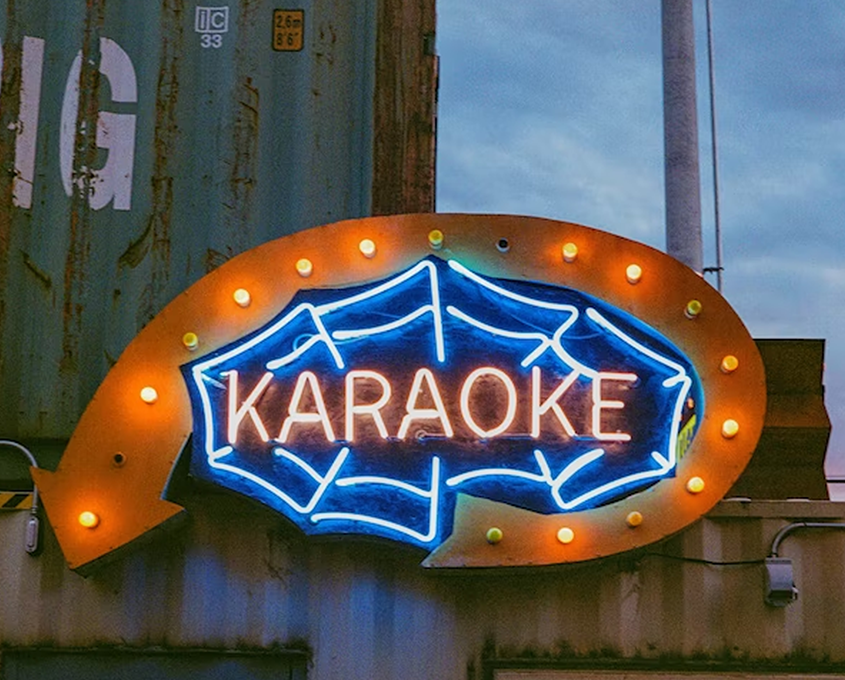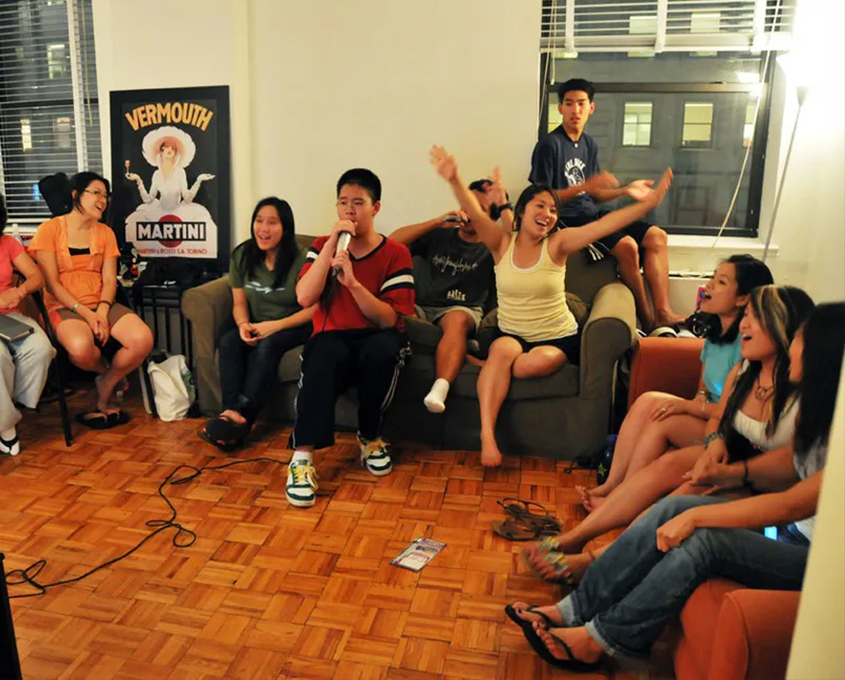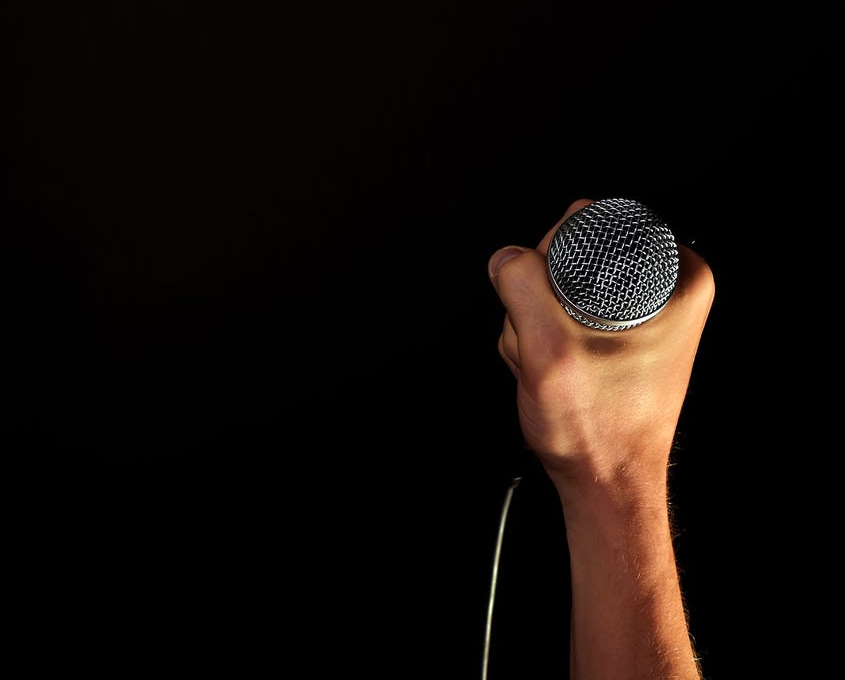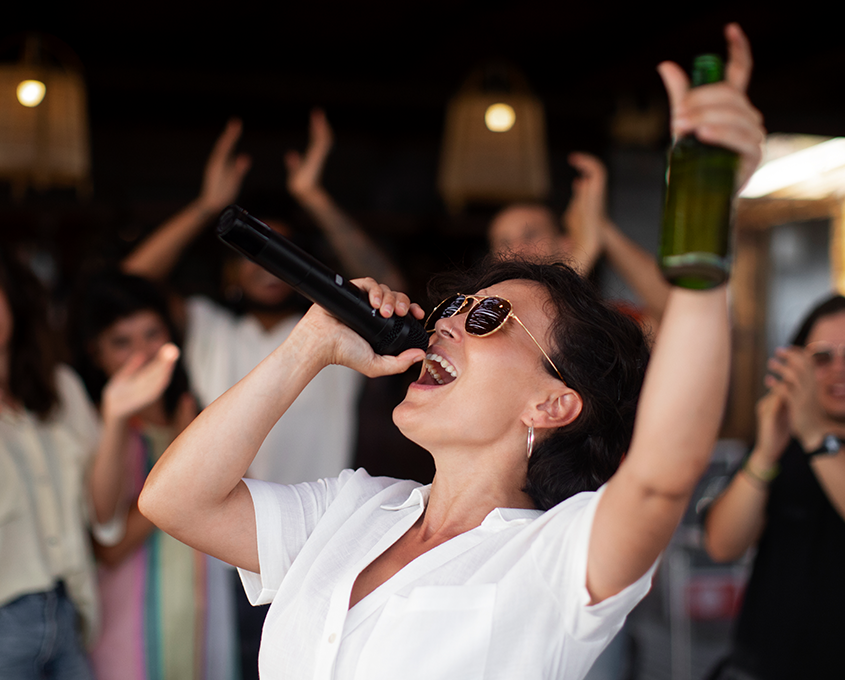Alexa, Play One-Eight-Zero-Three-Five in the Karaoke

There are many elements to a typical Filipino gathering or “salo-salo”. The seemingly infinite selection of food, the many guests or the many family members that we love (and hate), the variety of alcoholic drinks brought by your titos, and the holy grail of every Pinoy celebration: the Karaoke machine.
As part of our Buwan ng mga Wika campaign, we held a contest on Facebook called the Favorite 90s OPM Song Contest and asked everyone to tell us their favorite 90s OPM song from their favorite band, and a story behind why the song is significant to them. With the numerous songs and nostalgic stories told by the participants, it really makes you think of how important music is not just in our lives, but within our culture as Filipinos. Whenever we talk about Original Pinoy Music, it will always go hand-in-hand with Karaoke culture.

Every Filipino has an inner Karaoke Star
Singing isn’t something Filipinos take lightly. Our nation has produced some of the most talented artists and most confident performers the world has ever seen. Somehow, that same confidence has influenced many Filipinos especially in the face of a microphone, songbook, and karaoke machine.
It is not uncommon to hear the loud vocals from some of the strongest sound systems in every barangay, Filipino household, and KTV (Karaoke TV) bar, especially if the more vocally challenging tunes get queued and the extra strong Red Horse kicks in.
Classics from the Eraserheads, Parokya ni Edgar, and Aegis, raps and rhymes from Andrew E., and even international records from Mariah Carey and Celine Dion are only a few of the countless artists that Filipinos frequent when choosing song numbers from the songbook. Without a doubt, karaoke is an integral part of Philippine culture wherever you may be in the country.
Why is Karaoke so important to Filipinos?

For starters, singing has always been one of the favorite pastimes for Filipinos whether it be on different occasions or in their everyday lives. Take that, and combine it with karaoke, and you have amplified Filipino singing to the max. Karaoke has been one of the ways for our culture to foster a sense of community. The karaoke machine, in a way, acts as a vortex that draws in different types of people from family members, friends, neighbors, and people around the community. It gets people together to drink, eat, socialize, and most importantly have a great time and sing their favorite songs.
Every song gives them the chance to express themselves, with each note being sung with utmost emotion. Part of it is also having a sense of release, that whatever shyness you may feel when put in the spotlight could all be taken away with a bit of support from your friends and a few sips of alcohol. Despite karaoke being generally a fun and positive experience, we can’t avoid arguments and fights that could be brought about by the smallest things, sometimes even in taking turns with singing or choosing the next song.

To sum it all up, karaoke (or videoke, as known to most), is a symbol of happiness and community in Philippine culture. Happiness in a sense that it would always guarantee an entertaining and enjoyable atmosphere for everyone, whether you’re participating in the singing or not.
Karaoke is a symbol of community in a way that it brings people from different backgrounds together, regardless of who they are and where they come from. The next time you see people singing loudly in front of a karaoke machine with lyrics and Philippine tourist spots on the screen, don’t hesitate to join in the fun. When in doubt, grab a mic, and sing your heart out!